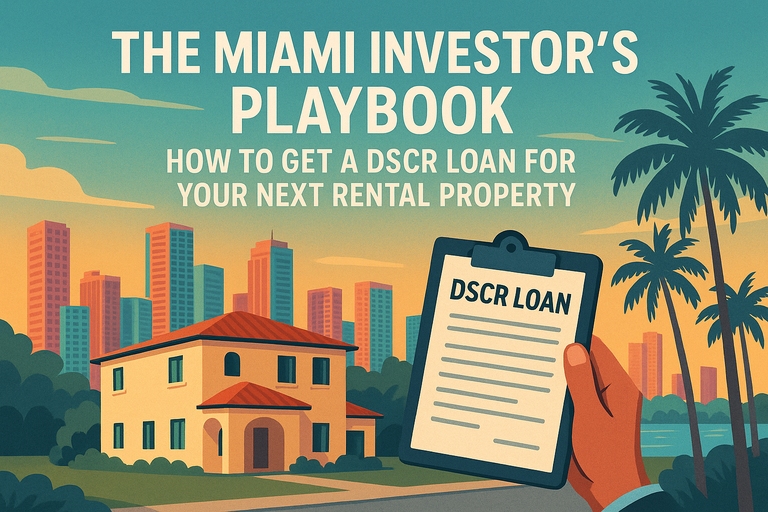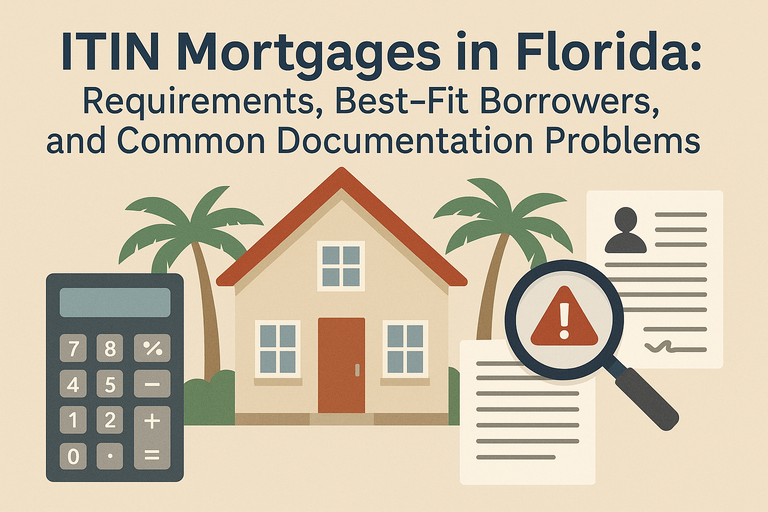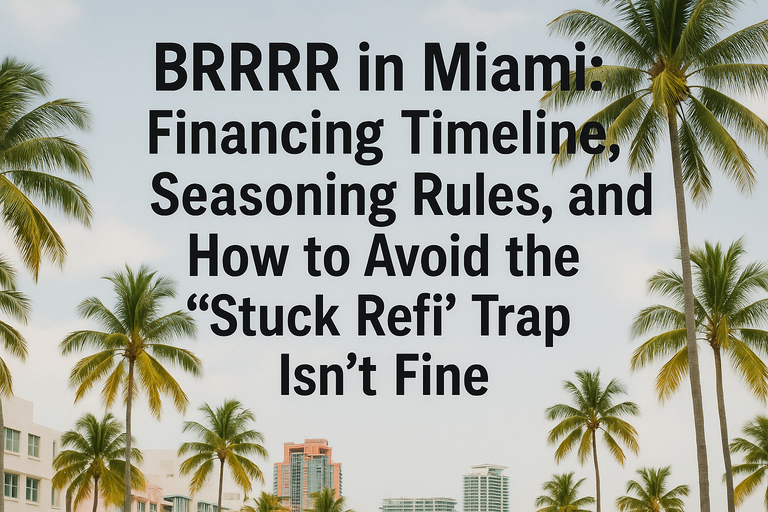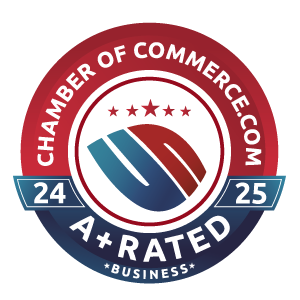Miami’s rental property market continues to deliver impressive returns for savvy investors who understand how to leverage the right financing tools. DSCR loans have emerged as the preferred financing solution for real estate investors seeking to build portfolios without the constraints of traditional mortgage qualification. If you’re wondering how to get a DSCR loan for your next Miami investment property, this comprehensive guide walks you through every step of the process.
Understanding the DSCR Loan Landscape in Miami
Before diving into how can I get a DSCR loan, it’s important to understand why these loans have become so popular among Miami investors. The city’s diverse rental markets—from Brickell’s luxury high-rises to Wynwood’s emerging neighborhoods and Miami Beach’s vacation rental goldmines—require flexible financing that adapts to different property types and investment strategies.
DSCR loans qualify borrowers based on property rental income rather than personal income, making them ideal for self-employed individuals, portfolio investors, and anyone whose tax returns don’t reflect their true earning potential. This fundamental difference opens doors that conventional financing keeps firmly closed.
This flexibility is what makes DSCR loans so appealing for investors focused on income-producing properties. Learn how Miami investors are leveraging DSCR loans to build profitable real estate portfolios in today’s dynamic market.
Step 1: Assess Your Eligibility and Prepare Your Foundation
The first step in learning how to get a DSCR loan is determining whether you meet the basic eligibility criteria. While DSCR loans are significantly more flexible than conventional mortgages, lenders still have minimum requirements:
Credit Score: Most DSCR lenders require a minimum credit score of 660-680, though some programs accept scores as low as 620 with compensating factors like larger down payments or exceptional property cash flow. Review your credit reports from all three bureaus and address any errors or issues before applying.
Down Payment: Plan for a minimum 20-25% down payment, though putting down 25-30% typically unlocks better interest rates. For a $500,000 Miami condo, you’ll need $100,000-$125,000 at minimum. Higher down payments also improve your DSCR ratio by reducing the monthly mortgage payment.
Cash Reserves: While not always required, having 6-12 months of property expenses in reserves strengthens your application. Miami lenders appreciate seeing financial cushion for hurricane season repairs, unexpected vacancies, or market fluctuations.
Property Requirements: The property must be used for investment purposes—DSCR loans cannot finance primary residences or second homes. However, they work perfectly for single-family homes, condos, townhomes, and 2-4 unit properties throughout Miami-Dade County.
Step 2: Choose the Right Miami Property with Strong Income Potential
How can I get a DSCR loan approved? The answer largely depends on selecting a property that generates sufficient rental income. Since the debt service coverage ratio compares rental income to debt obligations, properties in high-demand Miami neighborhoods naturally perform better.
Calculate Your Target DSCR: Most lenders prefer a DSCR of 1.25 or higher, meaning the property generates 25% more income than its expenses. Some Miami programs accept ratios as low as 0.75-1.0, but rates increase with lower ratios.
Analyze Miami Rental Markets: Research rental rates in your target neighborhoods. Properties in Coral Gables, Coconut Grove, and South Beach command premium rents that easily satisfy DSCR requirements. Even emerging areas like Little Haiti, Allapattah, and Liberty City can work if you run the numbers correctly.
Consider Short-Term Rental Income: Miami’s tourism economy means vacation rentals can generate 2-3 times more income than traditional leases. Many DSCR lenders will evaluate properties based on short-term rental potential, particularly in tourist-friendly areas near beaches, Bayside, or the Design District.
Get Pre-Qualification Rental Analysis: Before making offers, have potential lenders or appraisers provide preliminary rental income estimates. This prevents surprises during underwriting and ensures you’re targeting properties that will qualify.
Understanding your DSCR ratio is essential before choosing a property. If you’re new to DSCR financing, here’s a complete guide on what DSCR loans mean and how they work in South Florida.
Step 3: Where to Get a DSCR Loan in Miami
One of the most common questions investors ask is where to get a DSCR loan. The Miami market offers several options, each with distinct advantages:
Specialized Mortgage Brokers: Miami mortgage brokers who focus on investment property lending typically have relationships with multiple DSCR lenders nationwide. This gives you access to competitive rates and various program options. Brokers can shop your scenario to find the best terms without you having to contact multiple lenders individually.
Portfolio Lenders: Some local and regional banks keep DSCR loans on their own books rather than selling them. These portfolio lenders may offer more flexibility on unique properties or situations but might have higher rates or stricter requirements.
Direct DSCR Lenders: National non-QM lenders specializing in DSCR programs offer streamlined processes and competitive rates. Many operate efficiently online while still providing personalized service for Miami investors.
Private Lenders and Hard Money Bridges: While typically more expensive, private lenders can provide quick DSCR-style financing for time-sensitive opportunities. Some investors use hard money for purchases, then refinance into traditional DSCR loans once the property is stabilized.
The best approach when determining where to get a DSCR loan is working with Miami-based mortgage professionals who understand local market conditions, rental rates, and property values. Local expertise ensures smoother transactions and realistic rental income assessments.
Step 4: Gather Your Documentation
One of the biggest advantages of learning how to get a DSCR loan is discovering how minimal the documentation requirements are compared to conventional mortgages. Here’s what you’ll need:
Essential Documents:
- Government-issued ID (driver’s license or passport)
- Property purchase contract or existing property information for refinances
- Existing lease agreement OR rental appraisal showing market rent
- Recent credit report (your lender will pull this)
- Bank statements showing down payment funds (typically 2-3 months)
- Property insurance quote
- HOA documents if purchasing a condo (common in Miami)
- Entity documents if purchasing through an LLC
Not Required:
- Personal tax returns
- W-2s or pay stubs
- Employment verification
- Personal income documentation of any kind
- Debt-to-income ratio calculations
This streamlined documentation is exactly why investors choose DSCR loans. You can close in 2-3 weeks versus 45-60 days with conventional financing.
Step 5: Navigate the Application and Underwriting Process
Understanding how to get a DSCR loan means preparing for what happens after you apply. The process moves quickly once you submit your documentation:
Application Submission: Your lender will pull credit, verify asset accounts, and order a property appraisal. Miami appraisals typically take 7-10 days given the market’s volume.
Rental Income Evaluation: The appraiser will provide a rental income opinion comparing your property to similar rentals in the area. For Miami Beach condos, Brickell apartments, or Doral townhomes, finding comparable rentals is straightforward.
DSCR Calculation: The underwriter calculates your DSCR using the appraised rental income and your proposed mortgage payment plus taxes, insurance, and HOA fees. For example:
- Monthly rent: $3,500
- Mortgage payment (P&I): $2,200
- Property taxes: $400
- Insurance: $200
- HOA: $400
- Total debt service: $3,200
- DSCR: $3,500 ÷ $3,200 = 1.09
A 1.09 DSCR would qualify with most lenders, though the rate might be better with 1.25+.
Conditional Approval: Once underwriting reviews everything, you’ll receive conditional approval with any final requirements (updated insurance, additional documentation, etc.).
Clear to Close: After satisfying all conditions, you’ll receive final approval and can schedule closing with the title company.
Step 6: Close Your Loan and Execute Your Investment Strategy
The final step in how can I get a DSCR loan is actually closing the transaction. Miami closings typically happen at title company offices, though some lenders offer remote online notarization for out-of-state investors.
Bring your down payment funds (via wire transfer), government ID, and be prepared to sign loan documents. Your lender will provide a closing disclosure at least three business days before closing, detailing all costs and final loan terms.
Maximizing Your Success: Miami-Specific Strategies
Flood Insurance Considerations: Many Miami properties require flood insurance. Factor this into your DSCR calculations early—it can add $50-$300+ monthly to your debt service.
Condo Association Approval: Miami has thousands of condos, but some associations restrict rentals or have minimum ownership periods. Verify rental policies before making offers.
Seasonal Rental Analysis: If pursuing vacation rental income, ensure your lender evaluates annual income, not just peak season rates. Miami’s tourist season is strong, but some months are slower.
Multiple Properties: Once you understand how to get a DSCR loan, scaling becomes easier. Each property qualifies independently, so you can build a portfolio limited only by your down payment capital, not your personal income.
Your Next Steps to DSCR Financing
Now that you understand how to get a DSCR loan, where to get a DSCR loan, and how can I get a DSCR loan approved, the next step is connecting with experienced Miami mortgage professionals who specialize in investor financing.
The right lender will analyze your specific situation, recommend properties that meet DSCR requirements, and guide you through the streamlined process from pre-approval to closing. Miami’s rental market rewards investors who act decisively with the right financing tools—and DSCR loans provide the competitive advantage you need to build lasting wealth through real estate.
To compare DSCR programs with other financing options like bank statement or jumbo loans, explore all the loan solutions available through Miami Mortgage Broker and find the one that fits your investment goals best.






